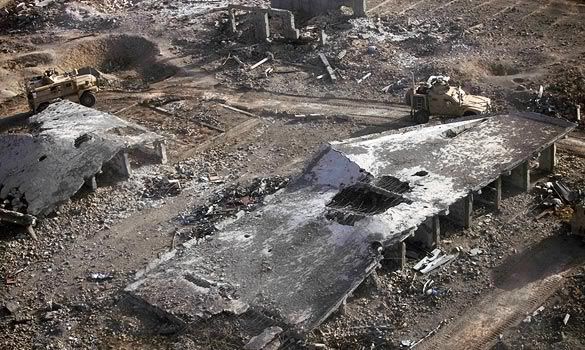
The troops are fighting over an area of less than 100 square miles, with a population of 80,000
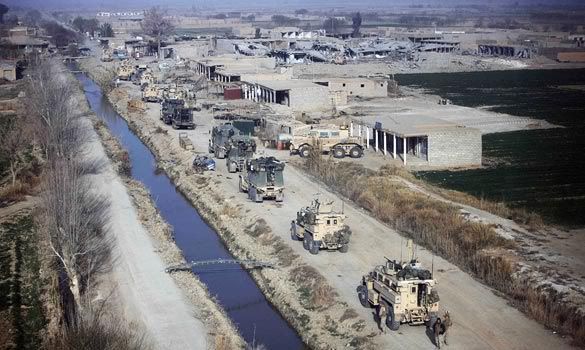
The massive offensive in Marjah involves about 15,000 US, British and Afghan troops
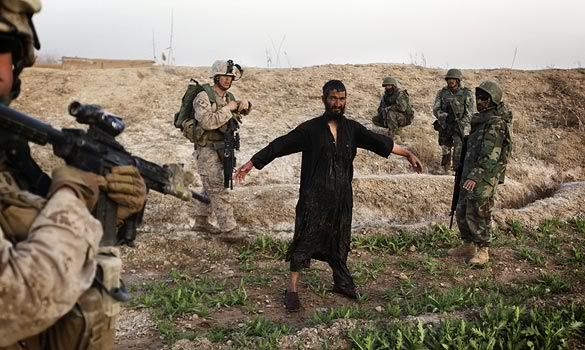
Under the rules, troops cannot fire at people unless they commit a hostile act or show intent
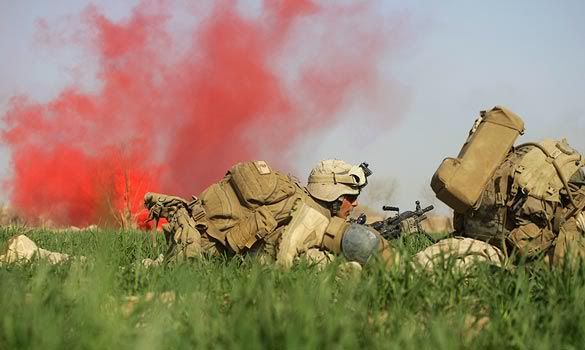
US Marines said their ability to fight back has been tightly constrained by strict new rules of engagement that make their task more difficult and dangerous
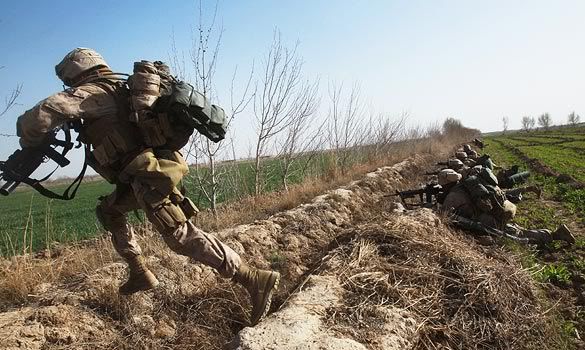
US officers said the fighting on the first day of the operation was as intense as any that the same unit faced during the infamous clearance of Fallujah in Iraq in 2004
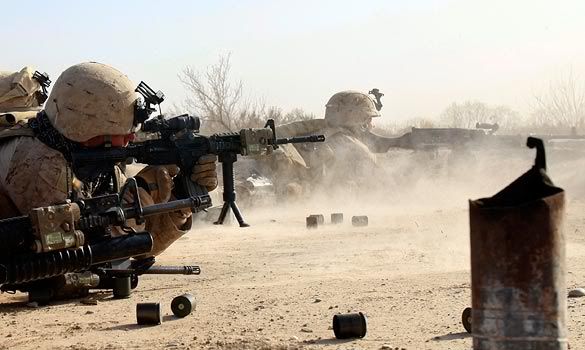
Multiple firefights broke out in different areas in and around Marjah, the last militant stronghold in the country's most violent province, Helmand
US Marines and Afghan troops were bogged down by sniper fire and home-made bombs on the third day of their biggest offensive since the overthrow of the Taleban in 2001.
Nato and allied forces were meeting fierce resistance in their battle to seize the Taleban’s main stronghold in southern Afghanistan, and were able to advance only 500 yards yesterday.
Multiple firefights broke out in various areas in and around Marjah, the Taleban’s most important opium-growing centre in Helmand, the country’s most violent province.
The US troops leading Operation Moshtarak (Togetherness) twice tried to capture the town’s central bazaar only to be pushed back by wellorganised insurgents. Coming under heavy fire and sniper attacks, and confronted by booby-trapped buildings, the US Marines were forced to call in Harrier jets and attack helicopters armed with Hellfire missiles.
Captain Abraham Spice, a US Marines spokesman, said: “In many parts of Marjah, we have seen very little opposition. There are areas where Marines have met with stiff resistance, but they’re making steady progress.”
US officers from Bravo Company 1st Battalion 6th Marine told The Times that the fighting on the first day had been as intense as any the unit faced during the infamous clearance of Fallujah in Iraq in 2004.
The skill displayed by Taleban insurgents showed high levels of tactical awareness and training — including “walking” mortar fire on to the Marines and persistent and accurate sniper fire.
The unit has lost one Marine and five have been injured. Many others have had near misses, including one soldier who was hit yesterday by a Taleban bullet between the eyes, but an inch above the rim of his helmet.
The offensive in Marjah involves 15,000 US, British and Afghan troops. It is the biggest joint operation since the 2001 invasion that ousted the Taleban. The troops are fighting over an area of less than 100 square miles, with a population of 80,000.
The slow progress strongly suggests that the campaign to capture insurgent-held areas before the troop withdrawal date of 2011 set by President Obama could slip.
US Marines said they are constrained by strict new rules of engagement that make their task more dangerous. Under the rules, troops cannot fire at people unless they commit a hostile act or show intent.
Corporal Travis Anderson, 20, from Iowa, said his platoon had repeatedly seen Afghan fighters dropping their guns into ditches before melting away into the civilian population.
“It’s hard to fight a war like this,” he said. “They’re using our rules of engagement against us.”
There was further fallout from the Nato missile strike that killed 12 civilians, including six children, on Sunday, a tragic error that dismayed General Stanley McChrystal, the US and Nato ground commander. He has emphasised that a failure to win over the civilian population will doom the military campaign to failure.
Hamid Karzai, the Afghan President, called for an investigation. Three more civilians died in the operation yesterday.
Major-General Nick Carter, commander of Nato forces in southern Afghanistan, said: “You won’t know how successful you’ve been probably for about eight weeks. The measure of it will be the extent to which the population is entirely on our side.” Afghan security chiefs were more optimistic, saying government troops faced “sporadic resistance”.
The Defence Minister Abdul Rahim Wardak said most insurgents had “hidden or escaped”. Three suspected bombmakers were identified via biometric tests and arrested trying to escape disguised as civilians.
Five Afghan civilians were accidentally killed and two others injured in an airstrike in Kandahar province, unrelated to Operation Moshtarak, Nato said yesterday.






0 comments:
Post a Comment